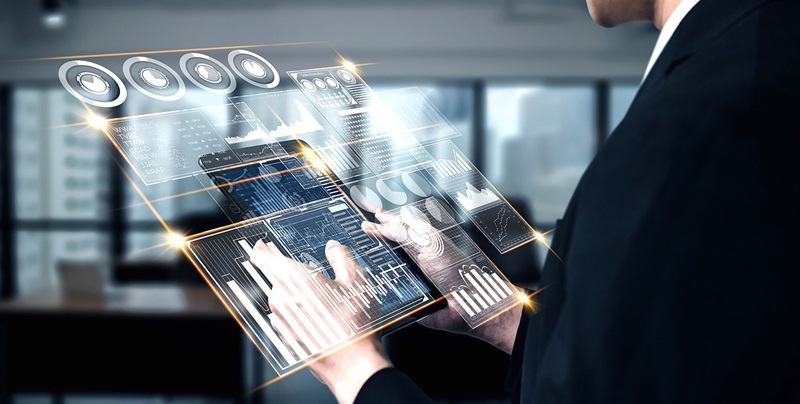The manufacturing sector is constantly evolving, with advancements in technology driving innovation and efficiency. In this rapidly changing landscape, Siemens Industrial Copilot has emerged as a game-changing AI assistant designed to enhance collaboration between humans and machines. This article explores the capabilities of Siemens Industrial Copilot, its integration with Microsoft Teams, and the potential it holds for revolutionizing industries such as manufacturing, infrastructure, transportation, and healthcare.
Enhancing Collaboration in the Manufacturing Sector
Siemens Industrial Copilot serves as a powerful tool for enhancing collaboration in the manufacturing sector. By bridging the gap between humans and machines, it enables professionals to work together seamlessly, resulting in increased productivity and efficiency. The tool’s advanced AI capabilities facilitate real-time collaboration, allowing teams to collaborate on complex tasks with ease.
Rapid Generation, Optimization, and Debugging of Automation Code
One of the standout features of Siemens Industrial Copilot is its ability to rapidly generate, optimize, and debug complex automation code. Traditionally, this process could take weeks, but with the assistance of the AI copilot, simulation times are reduced to mere minutes. This acceleration significantly speeds up the development and testing of automation systems, leading to a faster time-to-market for manufacturers.
Empowering Virtual Collaboration
The integration of Siemens Industrial Copilot with Microsoft Teams provides a streamlined virtual collaboration experience for professionals in the manufacturing sector. By harnessing the power of AI, the integration simplifies communication, enabling seamless sharing of data, documents, and insights. With AI-powered tools at their disposal, professionals can make informed decisions in real-time, enhancing collaboration and productivity.
Revolutionizing Industries with AI Co-pilots
Siemens and Microsoft envision AI co-pilots becoming integral in design, development, manufacturing, and operations across multiple industries. By leveraging the power of AI, these co-pilots have the potential to transform traditional workflows and foster global innovation. Industries such as manufacturing, infrastructure, transportation, and healthcare stand to benefit tremendously from the integration of AI co-pilots into their processes.
Schaeffler AG’s Innovation with Generative AI
Schaeffler AG, a leading automotive supplier, serves as a prime example of how companies are already leveraging the power of generative AI to reduce downtime in industrial automation systems. By utilizing Siemens Industrial Copilot, Schaeffler AG has been able to optimize its manufacturing processes, resulting in increased efficiency and minimized downtime. This case study showcases the immense benefits AI brings to the manufacturing sector.
Teamcenter for Microsoft Teams
Siemens and Microsoft are collaborating to launch Teamcenter for Microsoft Teams, an application that connects functions throughout the product design and manufacturing lifecycle. This integration allows workers without access to Product Lifecycle Management tools to contribute seamlessly to the design and manufacturing processes. By bringing together various stakeholders, Teamcenter empowers collaboration and streamlines workflows, resulting in more efficient product development.
Harnessing AI to Accelerate Innovation
The collaboration between Microsoft and Siemens highlights the potential of AI to accelerate innovation across the industrial sector. By leveraging AI-powered tools, professionals gain access to advanced algorithms, predictive analytics, and real-time insights, thereby enabling faster decision-making and improving overall productivity. The integration of AI into industrial processes paves the way for groundbreaking advancements and transformations.
Empowering industries and professionals
The partnership between Microsoft and Siemens represents a compelling case study in how AI empowers industries and professionals. By transforming traditional workflows, AI co-pilots enhance collaboration, improve efficiency, and drive innovation. As industries adapt to the ever-changing technological landscape, AI serves as a catalyst for growth, enabling professionals to overcome challenges and unlock the full potential of their organizations.
Siemens Industrial Copilot, in collaboration with Microsoft Teams, signifies a significant step forward in the journey towards enhanced collaboration in the manufacturing sector. With its ability to generate, optimize, and debug automation code rapidly, the tool revolutionizes traditional processes, reducing simulation times from weeks to minutes. As AI copilots become integral to design, development, manufacturing, and operations, industries across the board are poised for transformation. Through constant innovation and collaboration, Siemens and Microsoft exemplify the potential of AI to empower industries, foster global innovation, and shape the future of manufacturing.

